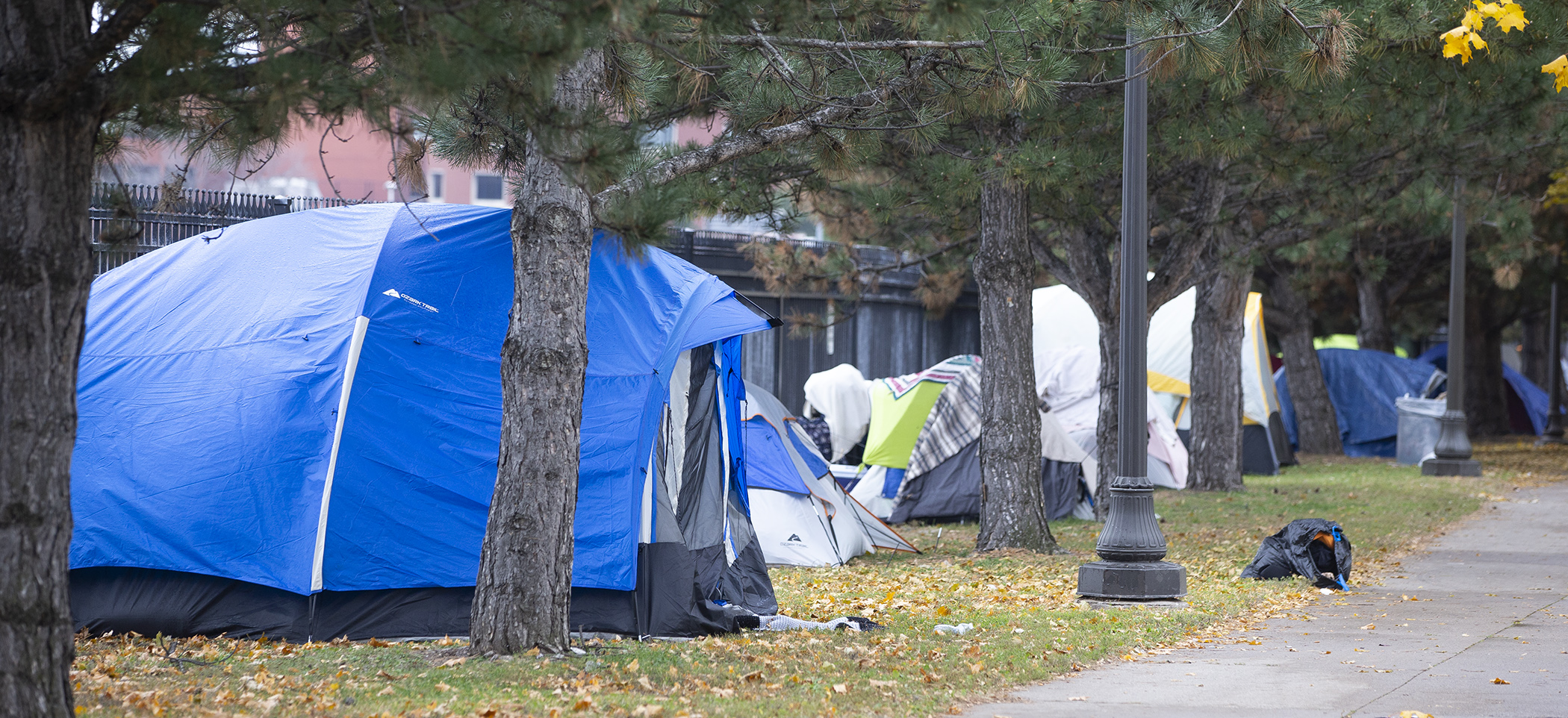Help could be coming for emergency shelters after House panel OKs funding boost

Minnesota's emergency shelter system could be in for a much-needed infusion of state funding.
On Wednesday, the House Preventing Homelessness Division approved two bills that would provide a combined $42.5 million to shelters and service programs.
HF21, sponsored by Rep. Hodan Hassan (DFL-Mpls), would appropriate $25 million for emergency shelters, and HF42, sponsored by Rep. Michael Howard (DFL-Richfield), would appropriate $17.5 million for emergency service grants, housing support and "isolation spaces" for people experiencing homelessness suspected or confirmed to have COVID-19.
The bills, which would tap General Fund dollars, were both approved on 7-4 party-line votes and sent to the House Human Services Finance and Policy Committee.
HF21 has no Senate companion, and HF42's companion, SF468, is sponsored by Sen. Melissa Wiklund (DFL-Bloomington) and awaits action by the Senate Human Services Reform Finance and Policy Committee.
Homeless shelters, a last resort for thousands of Minnesotans each year, help people work toward long-term stability and relieve pressure on first responders and emergency health care systems.
The state has dedicated about $46 million for emergency-service grants and homelessness support during the pandemic, including $26.5 million from a bipartisan bill passed in March.
Providers said the money has been crucial, but the need remains dire, especially during the ongoing uncertainty of the pandemic and spells of cold weather.
"The need for shelter is greater than even our expanded resources," said Rose Surma, executive director of Little Falls-based Oasis Central Minnesota, which provides meals, emergency housing and case management to families.
HF42 includes $9 million for emergency service grants, $4.3 million for isolation spaces and $4.2 million for the House Support Program, which helps pay housing costs for low-income seniors and adults with disabilities.
"These programs [are] our state's safety net, and we can't allow them to fail," Howard said.
Rep. Anne Neu Brindley (R-North Branch) would like to see language to allow for the recovery of state dollars if another federal COVID-19-relief bill is passed, an idea to which Howard said he is open.
She also expressed concern with "loose" language in HF21 that and not ensure that funds are distributed statewide.
Related Articles
Search Session Daily
Advanced Search OptionsPriority Dailies
Legislative leaders set 2026 committee deadlines
By Lisa Kaczke Legislative leaders on Tuesday officially set the timeline for getting bills through the committee process during the upcoming 2026 session.
Here are the three deadlines for...
Legislative leaders on Tuesday officially set the timeline for getting bills through the committee process during the upcoming 2026 session.
Here are the three deadlines for...